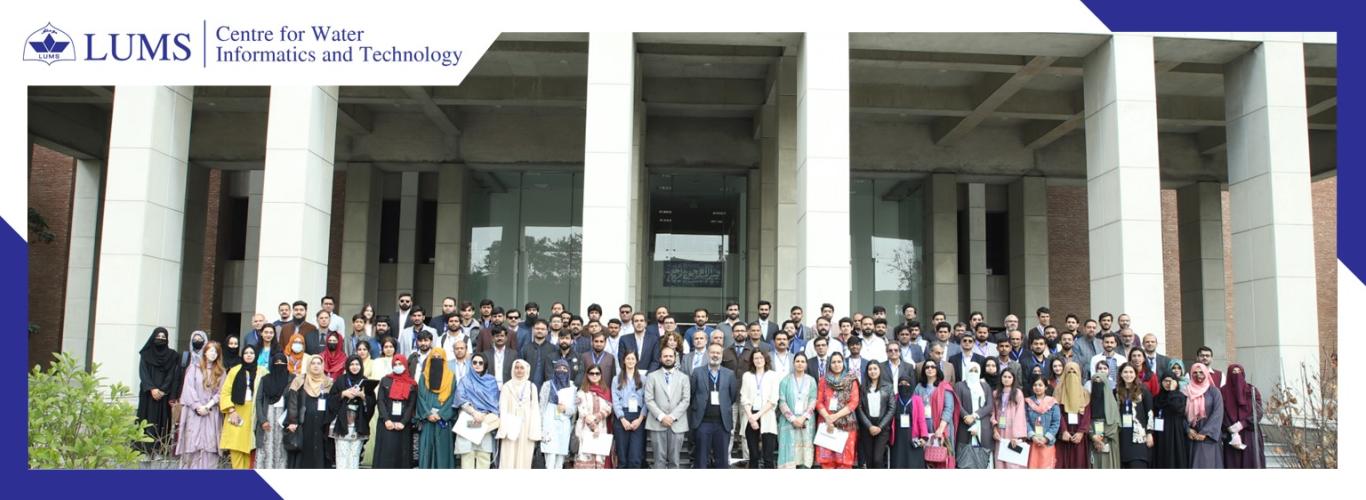WIT Hosts Nexus Summit 2024: Advancing Solutions for a Sustainable Future
The Centre for Water Informatics and Technology (WIT) at LUMS recently hosted a pivotal workshop, the "Nexus Summit: Harmonizing Energy, Water, and Agriculture Systems for a Low Emissions Future." This workshop, held from March 7th to March 8th, 2024, was timed amidst Pakistan's national discourse on climate change. As the nation grapples with the challenges posed by climate change, the summit aimed to lay the groundwork for sustainable, low-emission strategies post-2030.
The summit convened a diverse array of stakeholders, including academics, researchers, policymakers, and industry experts, all united in their commitment to enhancing Pakistan's modeling capacity for informed decision-making. The workshop's scope encompassed integrated multi-sectoral modeling frameworks, scenario building, and stakeholder engagement strategies crucial for effective policy formulation.
Key Objectives
Model Development and Analysis: Participants engaged in discussions surrounding the development, scenario building, and output analysis of integrated assessment frameworks. Through this, they gained insights into effective modeling processes and their implications for policy formulation.
Policy Integration: Policymakers and stakeholders were actively involved in exploring ways to incorporate relevant policies and national priorities into the developed scenarios, ensuring alignment with Pakistan's climate goals.
Science-Driven Policy Formulation: The summit aimed to enhance understanding of how models can assist policymakers in formulating science-driven policies, thereby fostering a more sustainable and resilient future.
Workshop Organisers:
The summit was made possible through the efforts of Dr. Talha Manzoor, Assistant Professor and Associate Director (Operations), WIT, Dr. Abubakr Muhammad, Associate Professor, Dept. of Electrical Engineering, Executive Director, WIT, Joudat Bint Khalil, Project Lead, WIT, and Dr. Asif Khan, Water and Climate Change Consultant, Asian Development Bank (ADB), who brought together their expertise and networks to facilitate meaningful discussions and collaborations.
Day 1
Highlights
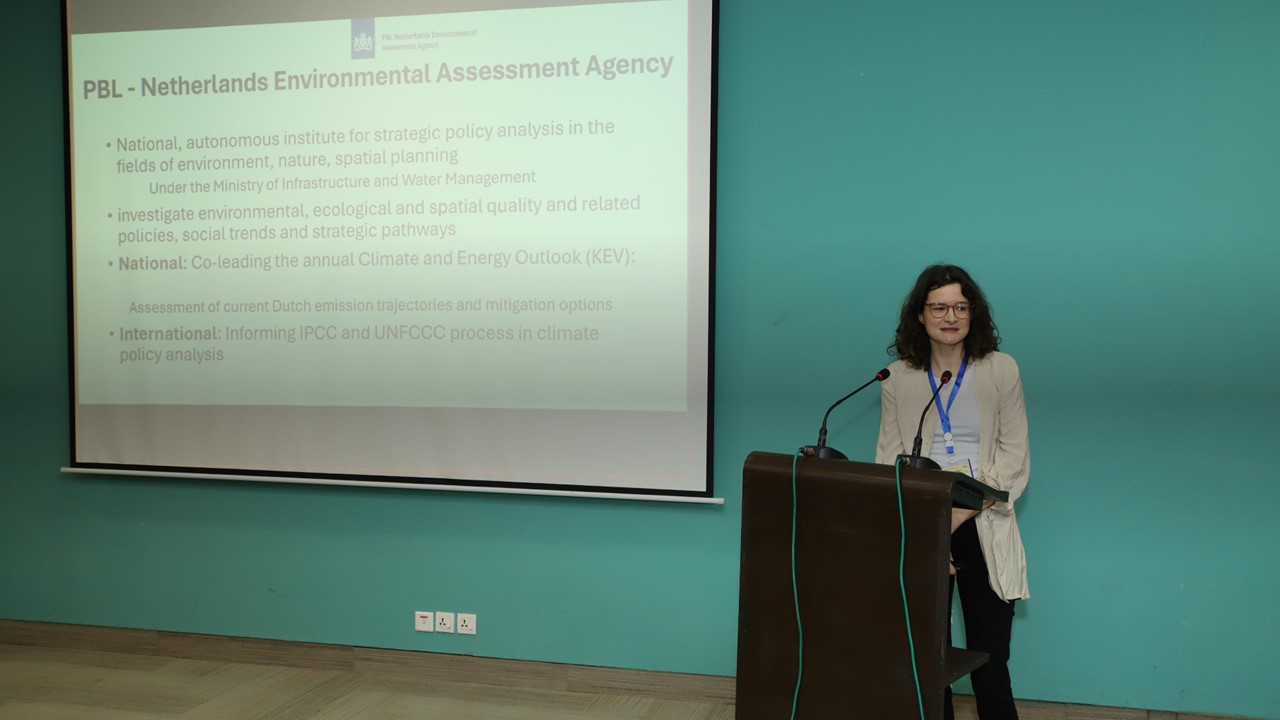
The first day featured a panel session, talks, and a roundtable discussion, setting the stage for in-depth exploration of key issues and opportunities. Ms. Stephanie Solf from the Netherlands Environmental Assessment Agency provided insights into the Climate pOlicy assessment and Mitigation Modeling project, offering valuable context for the workshop's objectives.
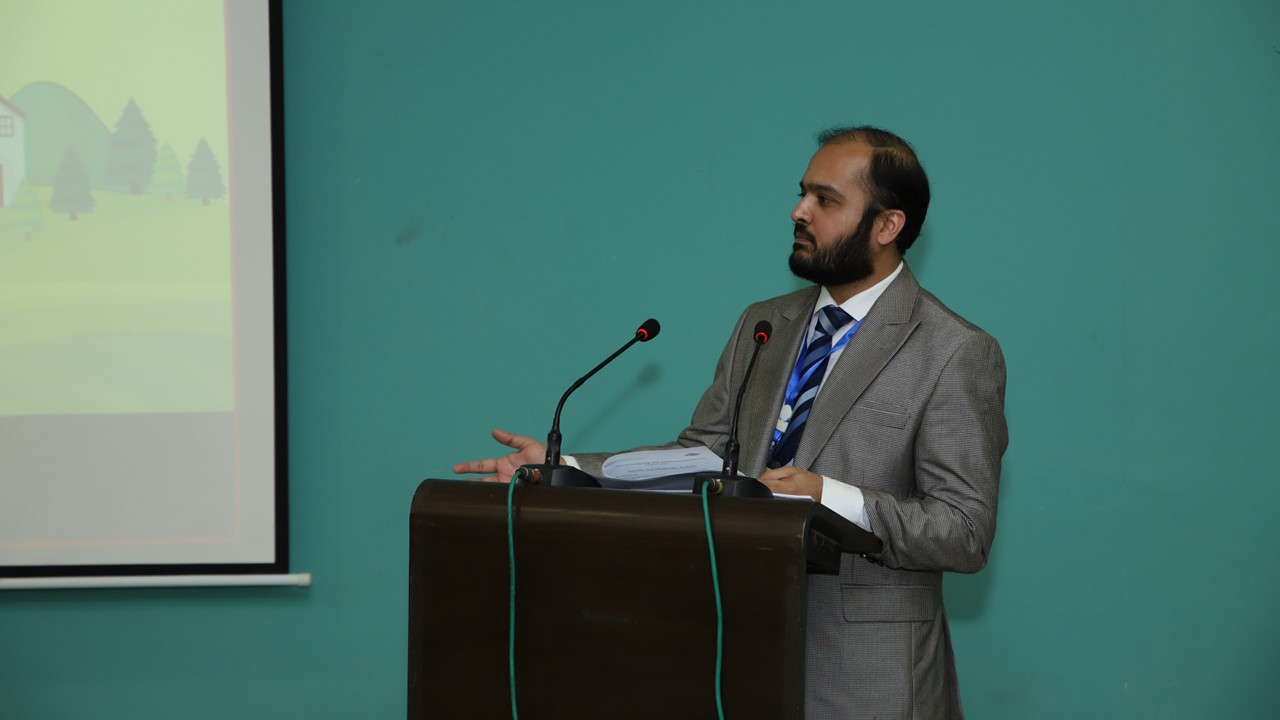
Dr. Talha Manzoor introduced the LUMS National Model Development Team and underscored Pakistan's vulnerability to climate change impacts, emphasizing the crucial role of the energy and agriculture sectors in mitigating emissions.
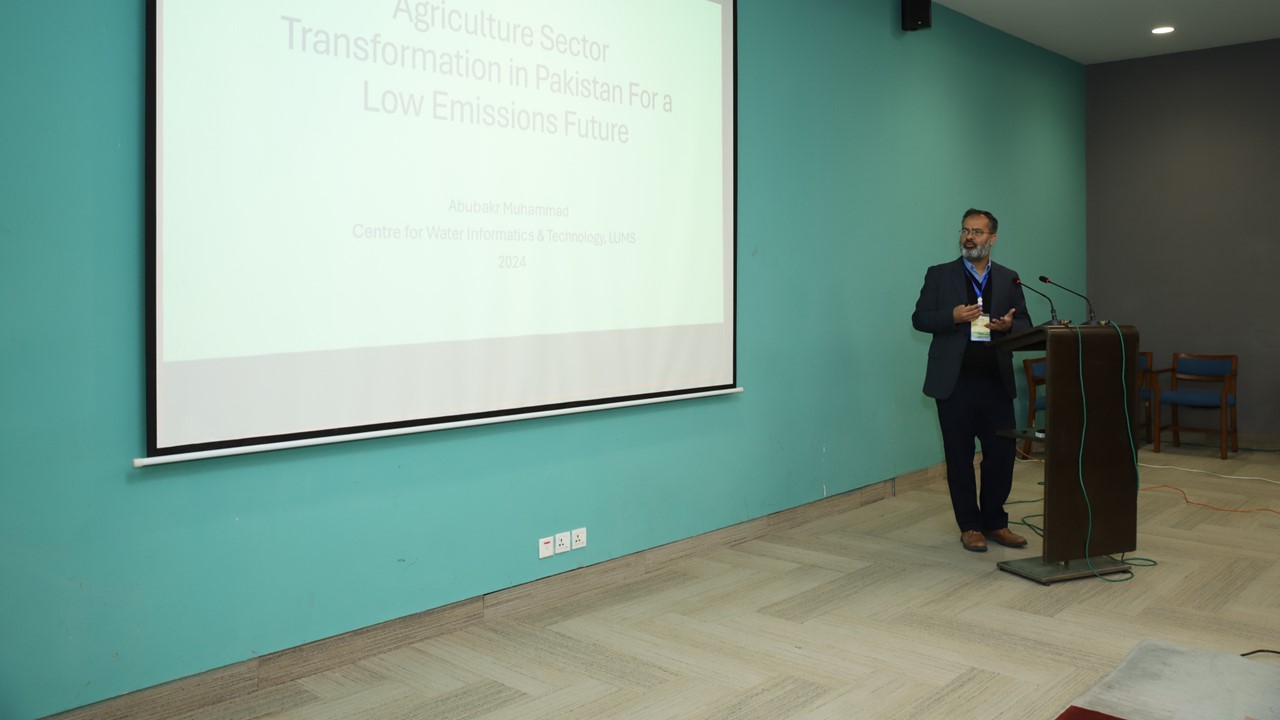
Dr. Abubakr Muhammad's presentation delved into the transformation of Pakistan's agriculture and food sector under climate change, shedding light on mitigation strategies and the country's commitments to reducing greenhouse gas emissions.
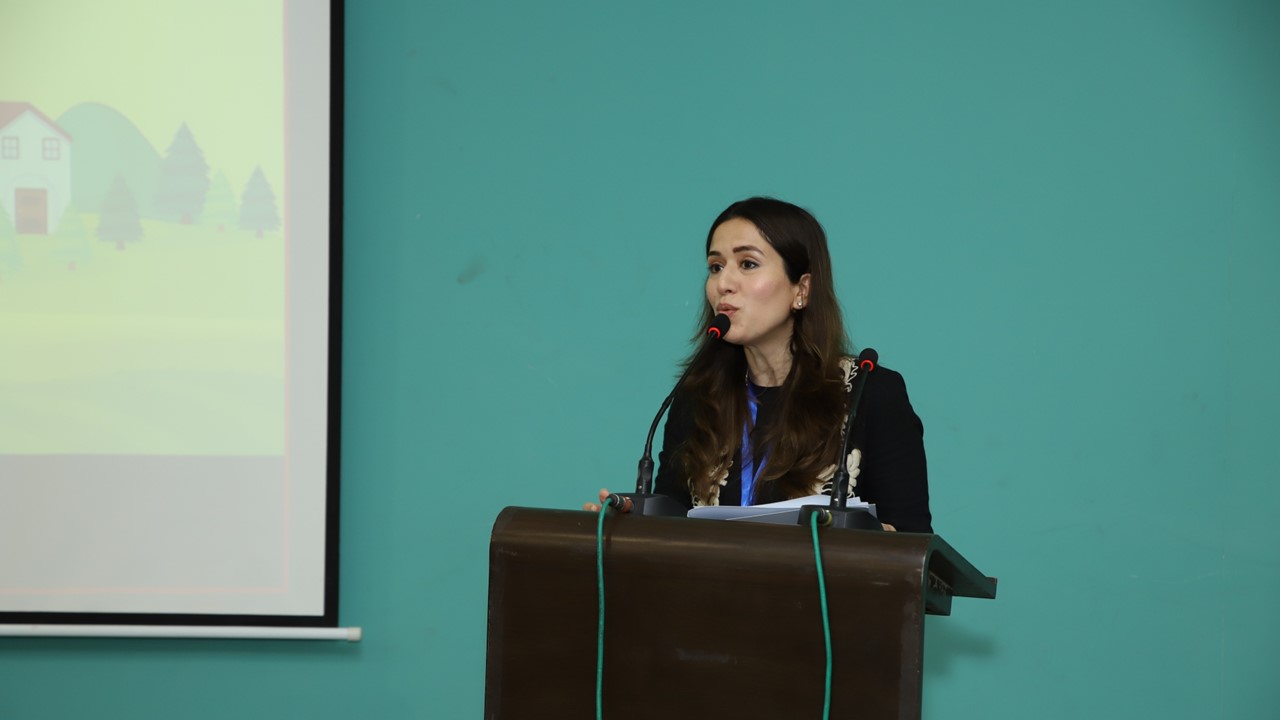
A significant highlight of the day was the panel session titled "Perspectives from the Frontlines: Pakistan’s Delegates at CoP28." This session provided a unique opportunity to hear firsthand accounts and insights from Pakistan's delegates who attended the 28th Conference of the Parties (CoP28) to the United Nations Framework Convention on Climate Change (UNFCCC).
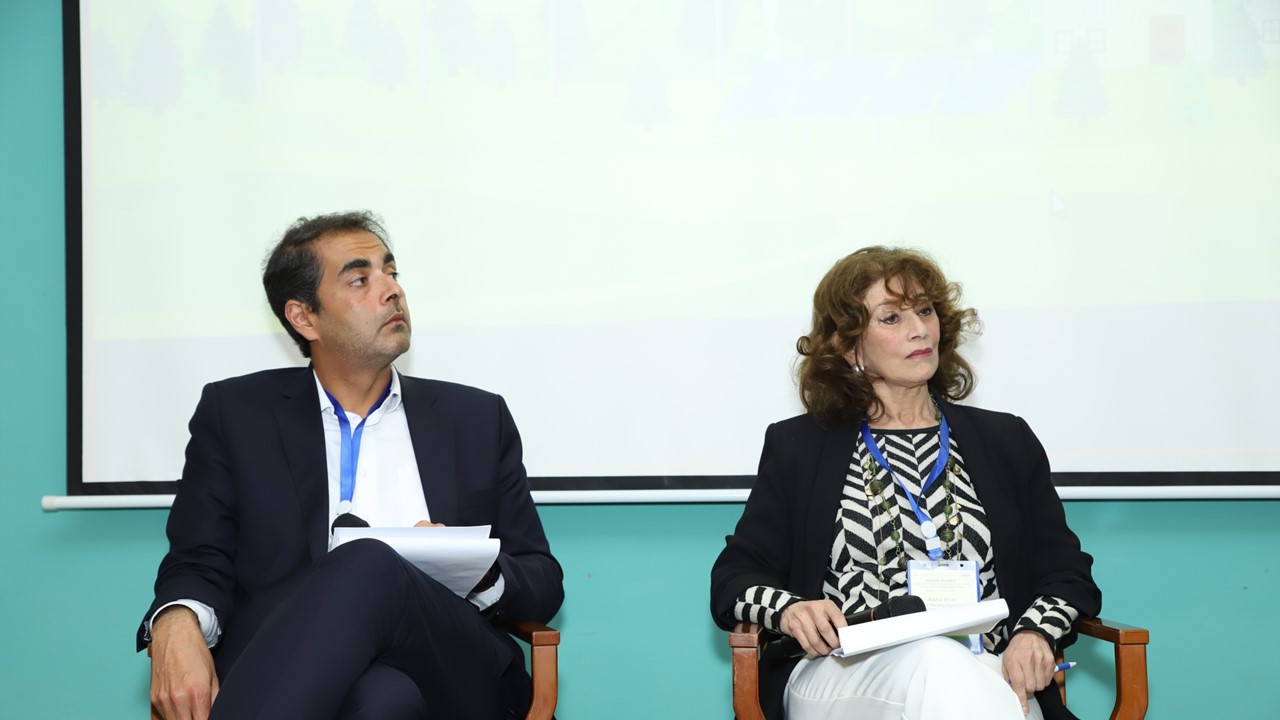
The esteemed panelists included Ms. Aisha Khan, Chief Executive of the Civil Society Coalition for Climate Change, and Mr. Saad Hayat Tammam, Advisor to Living Indus Initiative. Climate Change and Water Resource Governance Specialist, Living Indus Initiative, Dr. Fazilda Nabeel, expertly moderated the session, guiding the discussion and facilitating an exchange of ideas.The panelists shared their experiences, challenges, and key takeaways from CoP28, offering valuable perspectives on Pakistan's role in the global climate change arena.
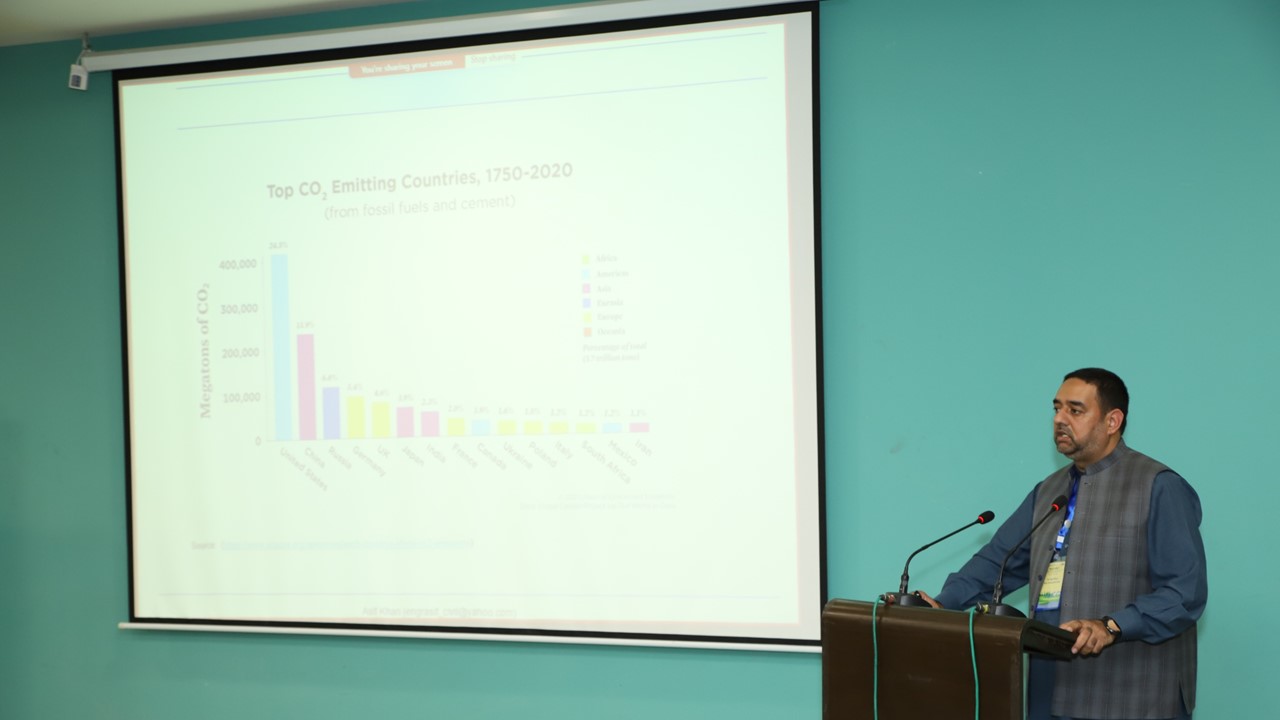
Dr. Asif Khan outlined the adverse effects of climate change on Pakistan's agricultural sector, highlighting issues such as non-uniform glacial retreat, changes in flood frequency, reservoir storage reduction, and impacts on crop yield and harvesting time.
Dr. Lara Aleluia Reis, Scientist, Euro-Mediterranean Center on Climate Change (CMCC), Italy, emphasised the need to align natural and global targets in climate policy. She proposed a protocol to synchronize targets related to GDP, electricity prices, forest cover, with updates to current policies, NDCs, and LTSs for effective climate action.
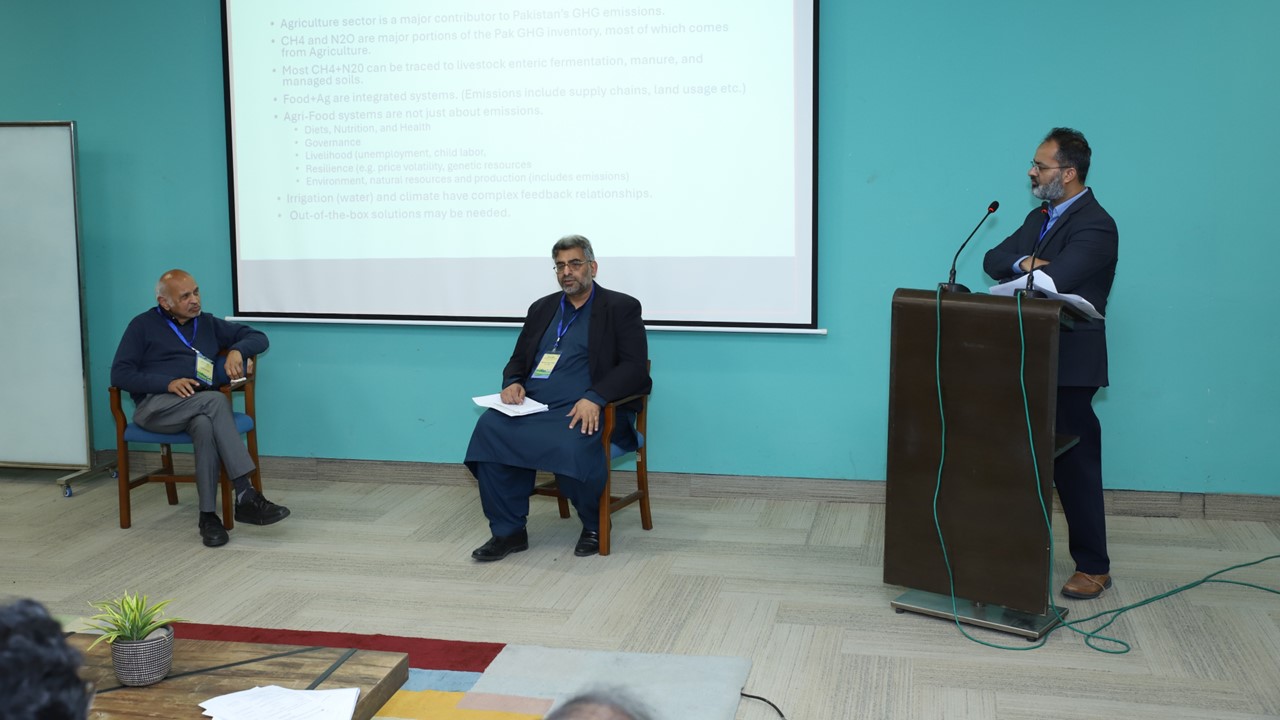
Moderated by Dr. Abubakr Muhammad, the round table discussion titled ‘Challenges and Opportunities on the Pathway to Net Zero’ delved into the intricate challenges and promising opportunities on the journey towards achieving net-zero emissions, with a particular focus on national planning frameworks.
The discussion highlighted the increasing interest of the private sector in climate-smart agriculture, emphasizing the integration of regenerative practices such as no-tilling, diversification, cover cropping, livestock integration, and agroforestry. Climate-smart agriculture was underscored for its potential to enhance productivity, adaptability, and mitigation practices while reducing water usage and greenhouse gas emissions.
The discussion further extended to energy sector reforms necessary for achieving net-zero emissions. Innovations such as agrivoltaics and application-specific system design were also identified as promising approaches to maximizing energy efficiency in agriculture.
Overall, the round table discussion provided a platform for insightful dialogue and collaborative problem-solving, laying the groundwork for actionable strategies to address climate change and promote sustainable development in Pakistan.
Day 2
Highlights
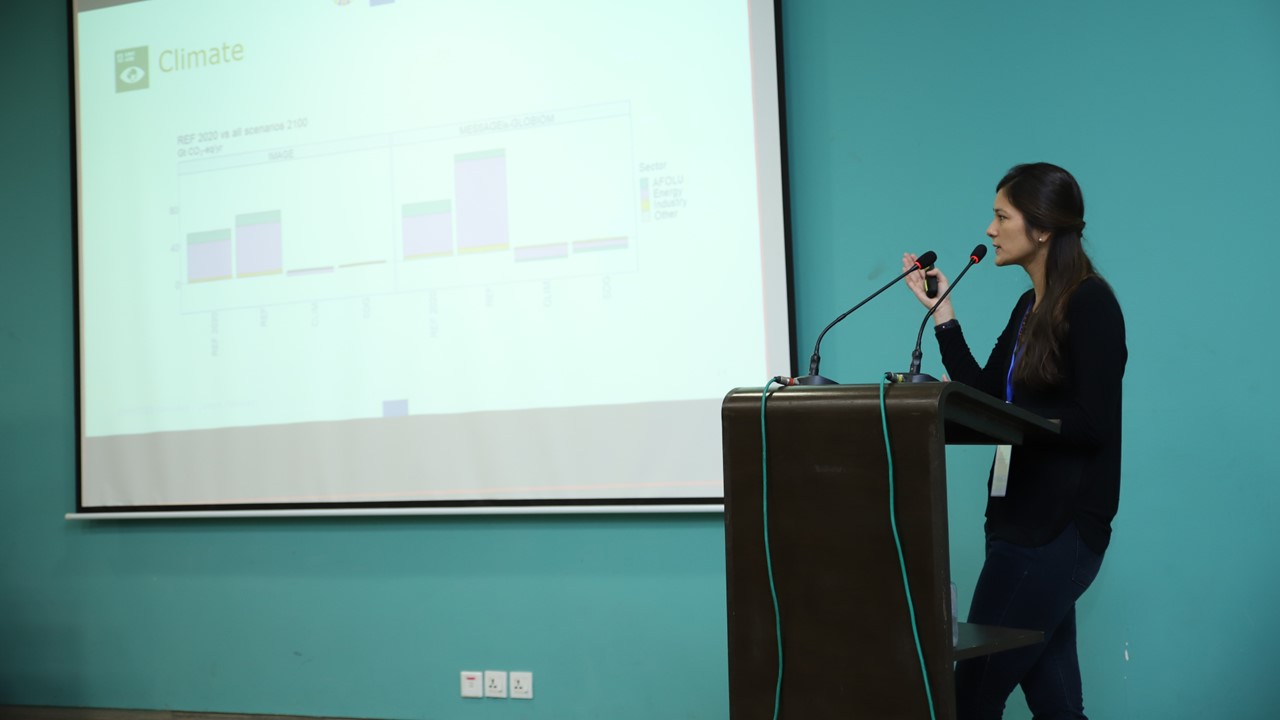
Day two of the workshop began with a talk by Dr. Isabela Schmidt Tagomori, Researcher, Netherlands Environmental Assessment Agency (PBL), Netherland. Her talk, The Climate, Land, Energy, Water (CLEW) Nexus discussed the interconnectedness of short-term actions on UN Sustainable Development Goals (SDGs) and long-term climate goals. Using frameworks like IMAGE and MESSAGEix, she demonstrated how actions related to food, water, land/biodiversity, and energy impact net emissions reduction. Emphasizing the need for improved representation of nexus dynamics in climate models, Dr. Tagomori highlighted the importance of understanding global and regional interactions for a sustainable future.
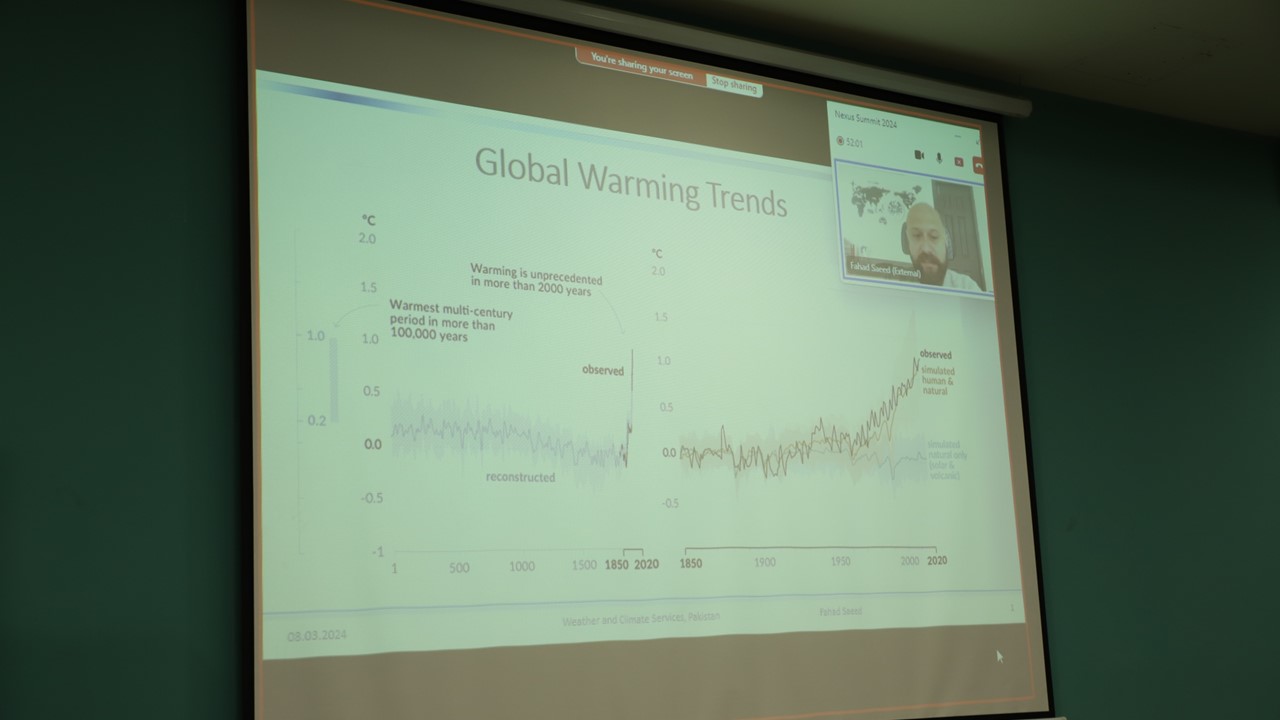
Dr. Fahad Saeed, Climate Scientist and Regional Lead: South Asia and the Middle East, Climate Analytics, discussed the Assessment of Climate Change Impact on Pakistan. He focused on the severe impacts of climate change on Pakistan, exacerbated by its geographic location and population distribution along the Indus Basin. He highlighted the country's vulnerability to extreme weather events, citing the 2022 floods as an example. Dr.Saeed presented climate modeling efforts using the UBC watershed model coupled with the OGGM model to predict future flood indicators, heat waves, temperature, and drought scenarios under different IPCC scenarios. He also showcased tools developed by his team to aid climate researchers in similar endeavours.
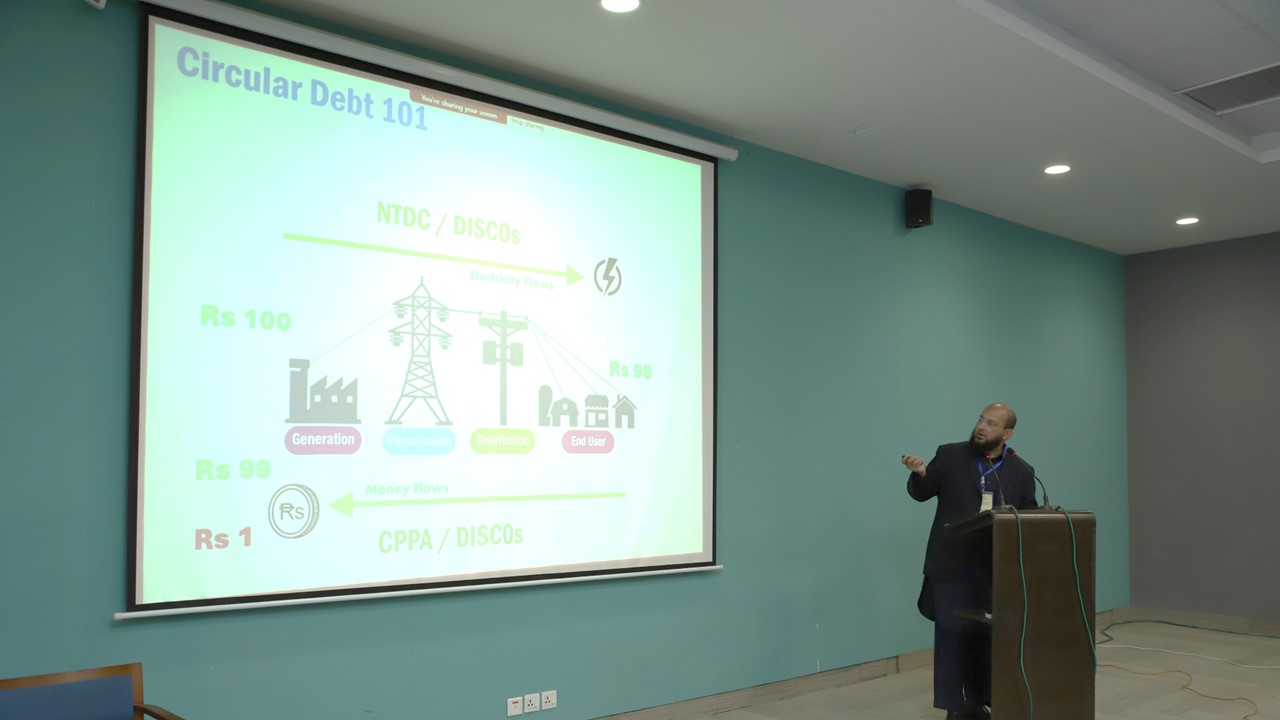
Dr. Naveed Arshad, Director of the National Center in Big Data and Cloud Computing and Founding Member of LUMS Energy Institute, discussed Pakistan's energy sector transformation in the face of climate change threats. He highlighted that current net-zero modeling overlooks Pakistan's ground realities, including the issue of circular debt. Despite having excess generation capacity compared to demand, economic inefficiencies persist. Dr. Arshad proposed strategies to address challenges, including increasing productive load, reducing peak load through electrification initiatives, and tackling demand crash issues. His insights underscored the importance of comprehensive reforms to navigate Pakistan towards a sustainable energy future.
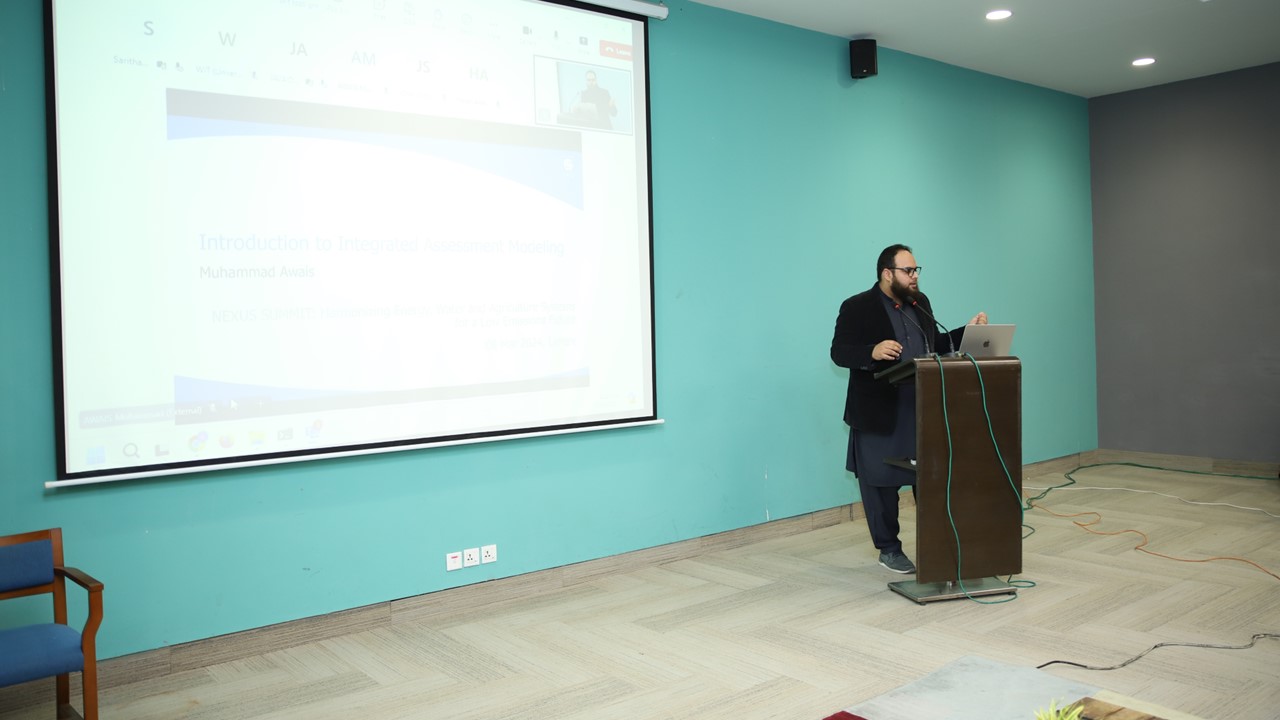
The session titled "Introduction to Integrated Assessment Modeling" provided a comprehensive overview of IAMs by Dr. Muhammad Awais, Researcher at the International Institute for Applied Systems Analysis. He discussed their use in strategic planning of human-to-environment interactions, comparing them with conventional climate models and highlighting research questions they address. Dr. Siddharth Joshi, supplemented the discussion with insights on the MESSAGEix model, emphasizing its advanced dynamic linear programming framework.
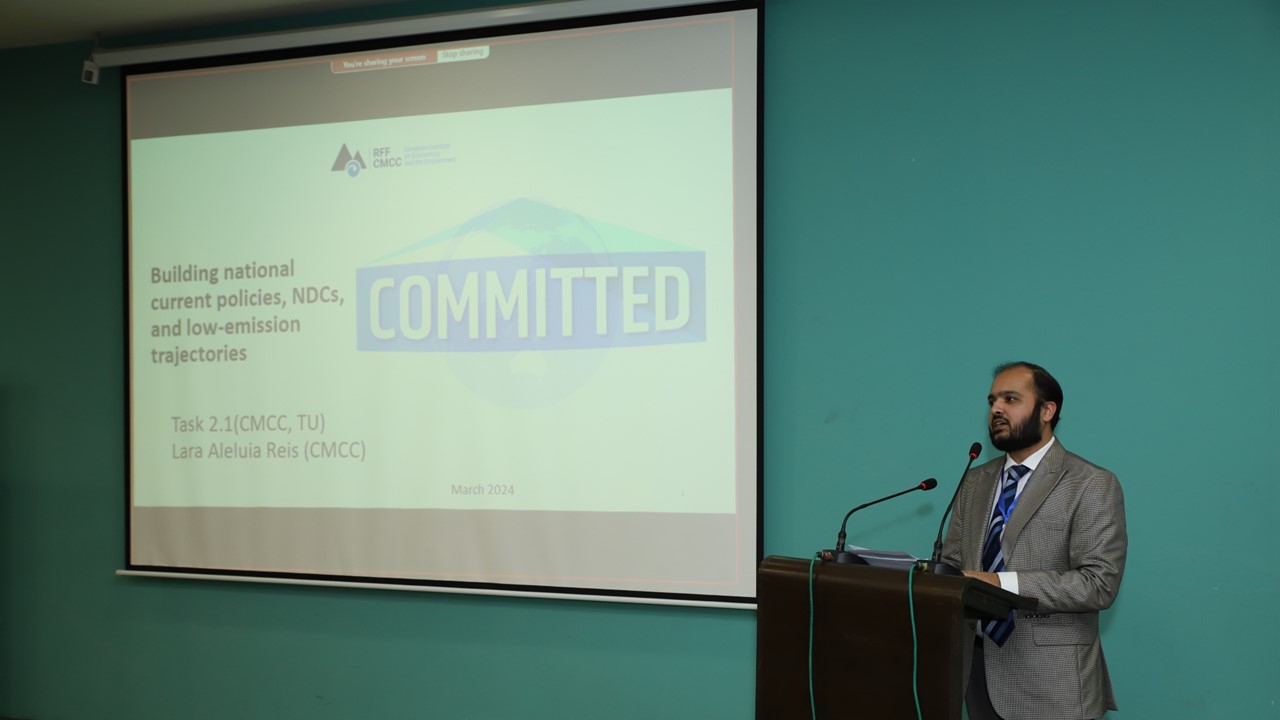
This laid the groundwork for Dr. Talha Manzoor's session on the MESSAGEix model for the Indus Basin, exploring its technical aspects and application for sectoral decision-making.
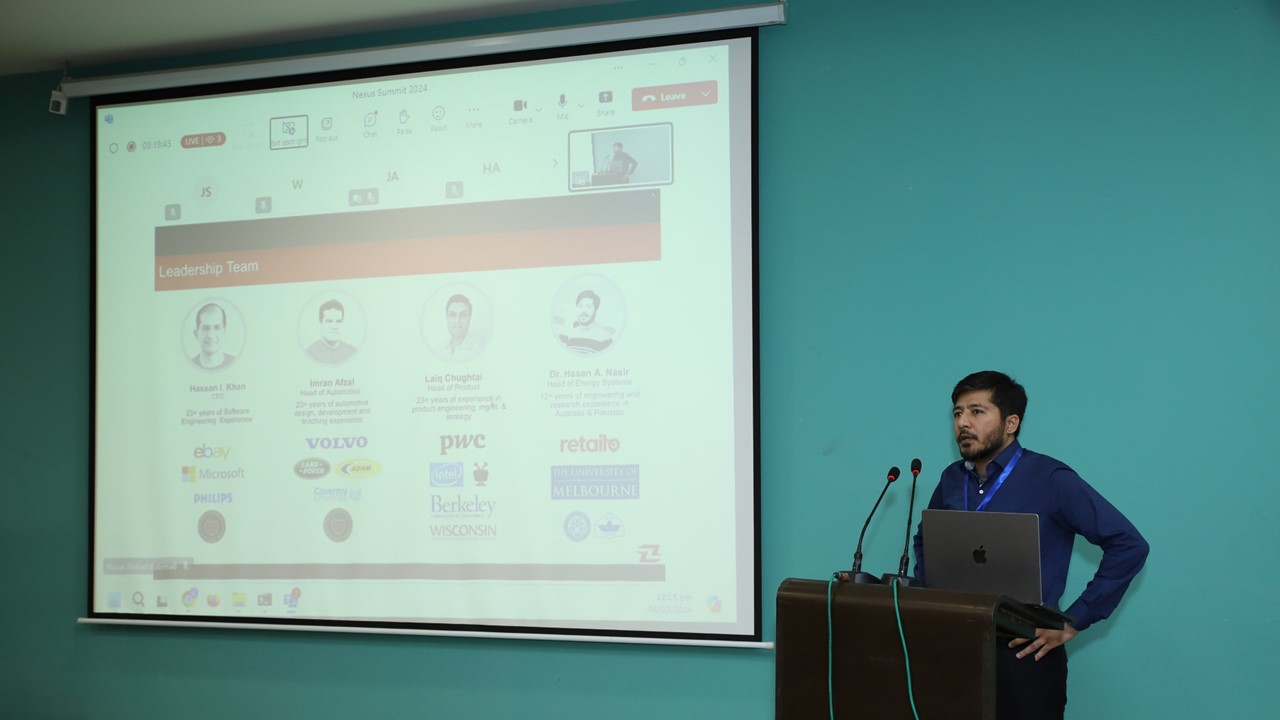
Dr. Hasan Nasir, Co-founder and Head of Energy Storage at Zyp Technologies, discussed the impact of electric bikes on revolutionizing sustainable transport in Pakistan. He outlined the entire EV setup, including production, battery usage, and swapping stations, emphasizing its potential in mitigating air pollution.
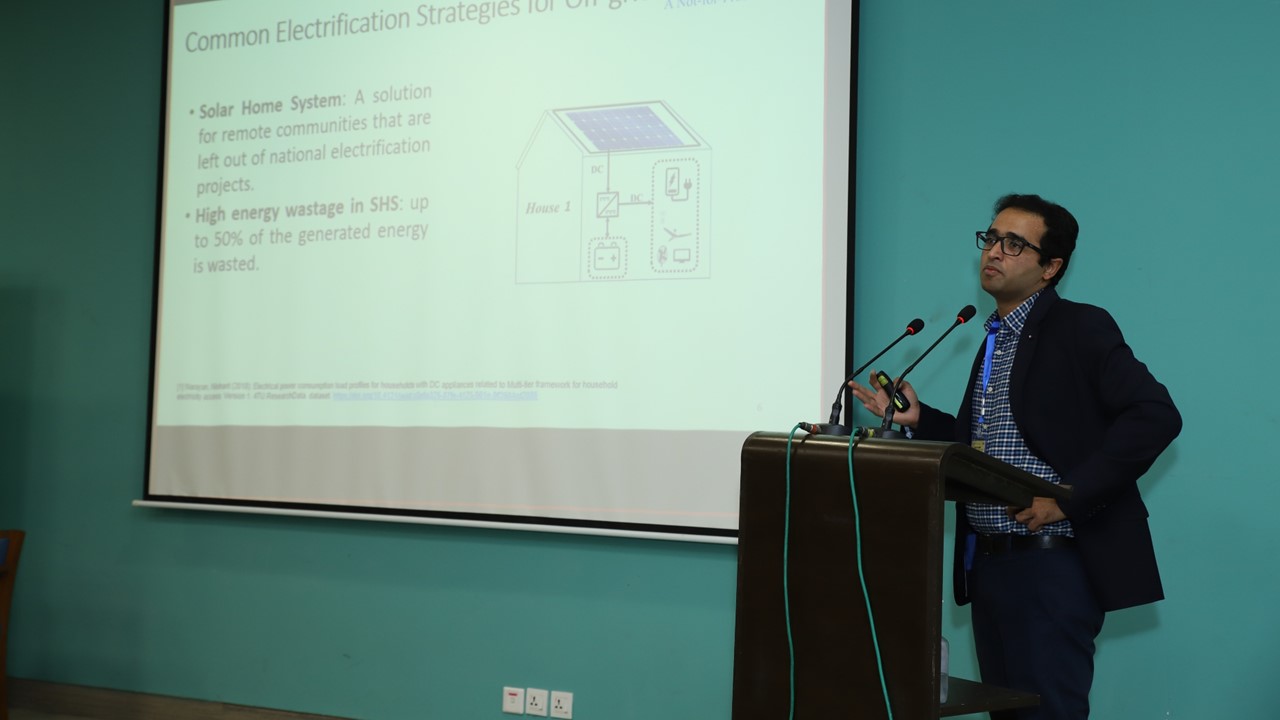
Dr. Hassan Abbas Khan, Associate Professor of Electrical Engineering and Founding Member of LUMS Energy Institute, led a session on off-grid electrification attempts in rural Pakistan, presenting his team's decentralized prosumer microgrid solution and real case studies, inspiring the audience with efforts towards addressing the country's energy crisis.
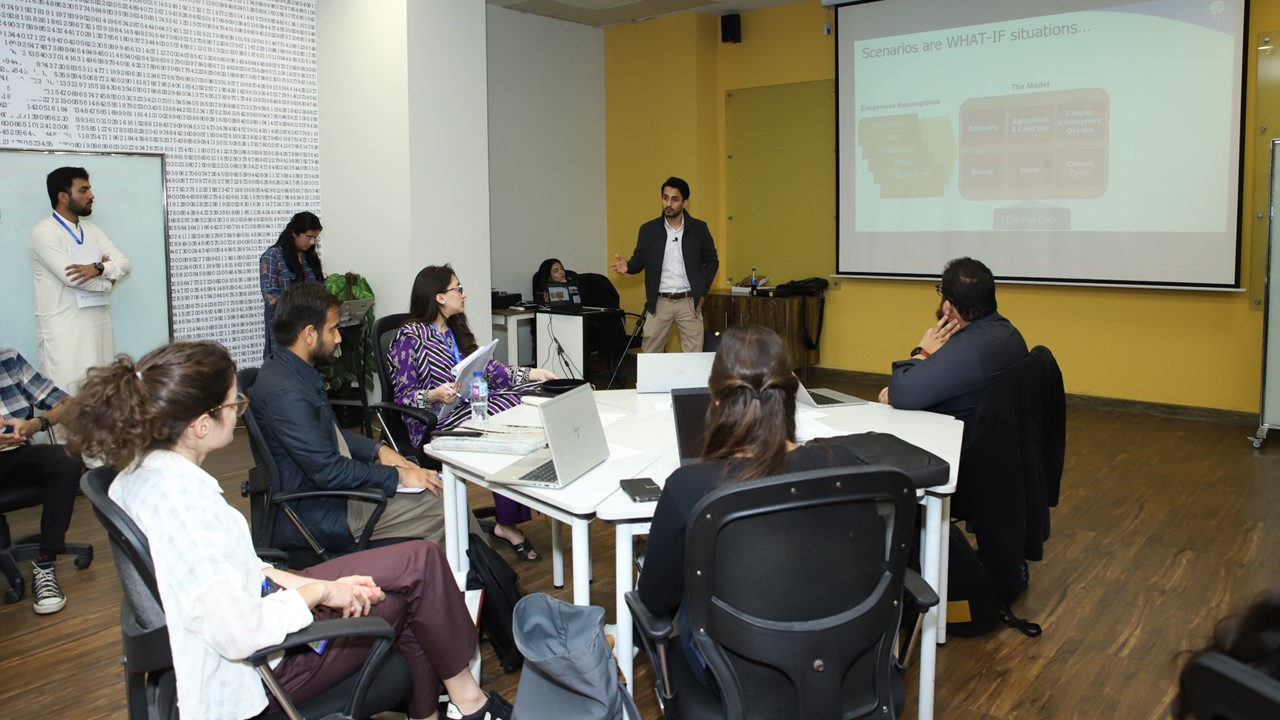
The talks were followed by a co-creation activity led by Mr. Hassan Khan Niazi from the Pacific Northwest National Laboratory and Dr. Awais, involving interactive group discussions on scenario co-creation for Pakistan's future energy projections. Participants actively engaged in brainstorming practical implications of IAMs and climate policies, presenting their choices and insights.
A memorable field trip to LUMS Sustainable Agriculture Facility and Kargah concluded the workshop, providing firsthand experience of sustainable technology research and production setups, including EV rickshaws and bikes, leaving participants with a lasting impression of the workshop's themes and discussions.
Key Takeaways
The summit provided a platform for robust discussions and knowledge exchange, highlighting the interconnectedness of energy, water, and agriculture systems in the context of climate change mitigation.
It served as a catalyst for collaboration and action, reaffirming the commitment of stakeholders to address the complex challenges posed by climate change and pave the way for a brighter, more sustainable future for Pakistan.

